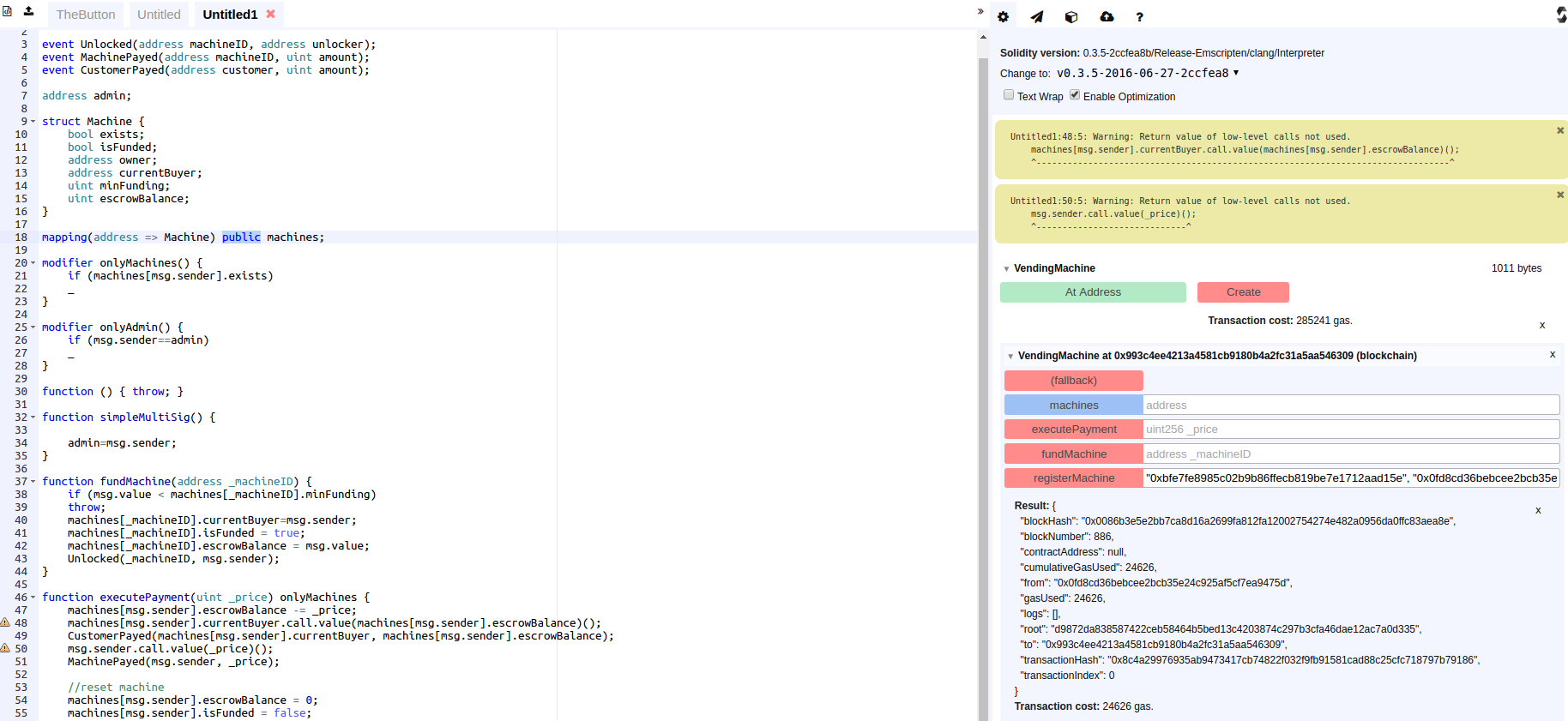I have a contract that breaks after I add only the word "public" to a mapping. For reference, my contract is below:
contract VendingMachine {
event Unlocked(address machineID, address unlocker);
event MachinePayed(address machineID, uint amount);
event CustomerPayed(address customer, uint amount);
address admin;
struct Machine {
bool exists;
bool isFunded;
address owner;
address currentBuyer;
uint minFunding;
uint escrowBalance;
}
mapping(address => Machine) public machines;
modifier onlyMachines() {
if (machines[msg.sender].exists)
_
}
modifier onlyAdmin() {
if (msg.sender==admin)
_
}
function () { throw; }
function VendingMachine() {
admin=msg.sender;
}
function fundMachine(address _machineID) {
if (msg.value < machines[_machineID].minFunding)
throw;
machines[_machineID].currentBuyer=msg.sender;
machines[_machineID].isFunded = true;
machines[_machineID].escrowBalance = msg.value;
Unlocked(_machineID, msg.sender);
}
function executePayment(uint _price) onlyMachines {
machines[msg.sender].escrowBalance -= _price;
machines[msg.sender].currentBuyer.call.value(machines[msg.sender].escrowBalance)();
CustomerPayed(machines[msg.sender].currentBuyer, machines[msg.sender].escrowBalance);
msg.sender.call.value(_price)();
MachinePayed(msg.sender, _price);
//reset machine
machines[msg.sender].escrowBalance = 0;
machines[msg.sender].isFunded = false;
}
function registerMachine(address _machineID, address _owner, uint _minFunding) onlyAdmin {
machines[_machineID].exists = true;
machines[_machineID].owner = _owner;
machines[_machineID].minFunding = _minFunding;
}
function checkAdmin() returns (address){
return admin;
}
}
After deploying and getting the contract address in context with:
var myContract = contract.at(<returned address>)
I first register a contract:
myContract.registerMachine(eth.accounts[1],eth.accounts[2],400000000000,{from:eth.coinbase,gas:4000000})
This should set machines[eth.accounts[1]].exists to true, and set some of the other struct values...but intsead nothing happens and the rest of my contract can't execute. When I take change the mapping to remove the "public" visibility, it works perfectly and I am able to execute the rest of the calls and move ether around as needed.
If anyone can help explain why adding public breaks my contract so badly I'd be very grateful. Thanks

